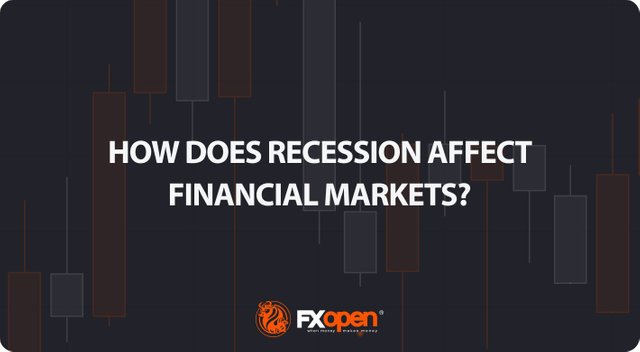
Recessions, marked by widespread economic decline, profoundly impact financial markets. Understanding how different markets – stock, forex, commodity, and bond – respond to these downturns is crucial for traders and investors. This article delves into the varied effects of recessions, highlighting strategies for navigating these challenging times and identifying potential opportunities for resilience and growth in the face of economic adversity.
Understanding Recessions
A recession is a significant decline in economic activity spread across the economy, lasting more than a few months, typically visible in real GDP, real income, employment, industrial production, and wholesale retail sales. Economic experts often cite two consecutive quarters of GDP contraction as a technical indicator of a recession. However, it's more than just numbers; it reflects a noticeable slump in economic activities and consumer confidence.
Historically, recessions have been triggered by various factors, such as sudden economic shocks, financial crises, or bursting asset bubbles. For instance, the Global Financial Crisis of 2007-2008 stemmed from the collapse of the housing market bubble in the United States, leading to a worldwide economic downturn.
Recession impacts nearly every corner of the economy, leading to increased unemployment, reduced consumer spending, and overall economic stagnation.
Effects of Recession on Different Financial Markets
A recession's impact on financial markets is multifaceted, influencing everything from stocks and bonds to forex and commodities. However, each market reacts differently. To see how these various asset classes have reacted in past recessions, head over to FXOpen’s free TickTrader platform to access real-time market charts.
General Impact on Markets
Read full story visit FXOPen blog